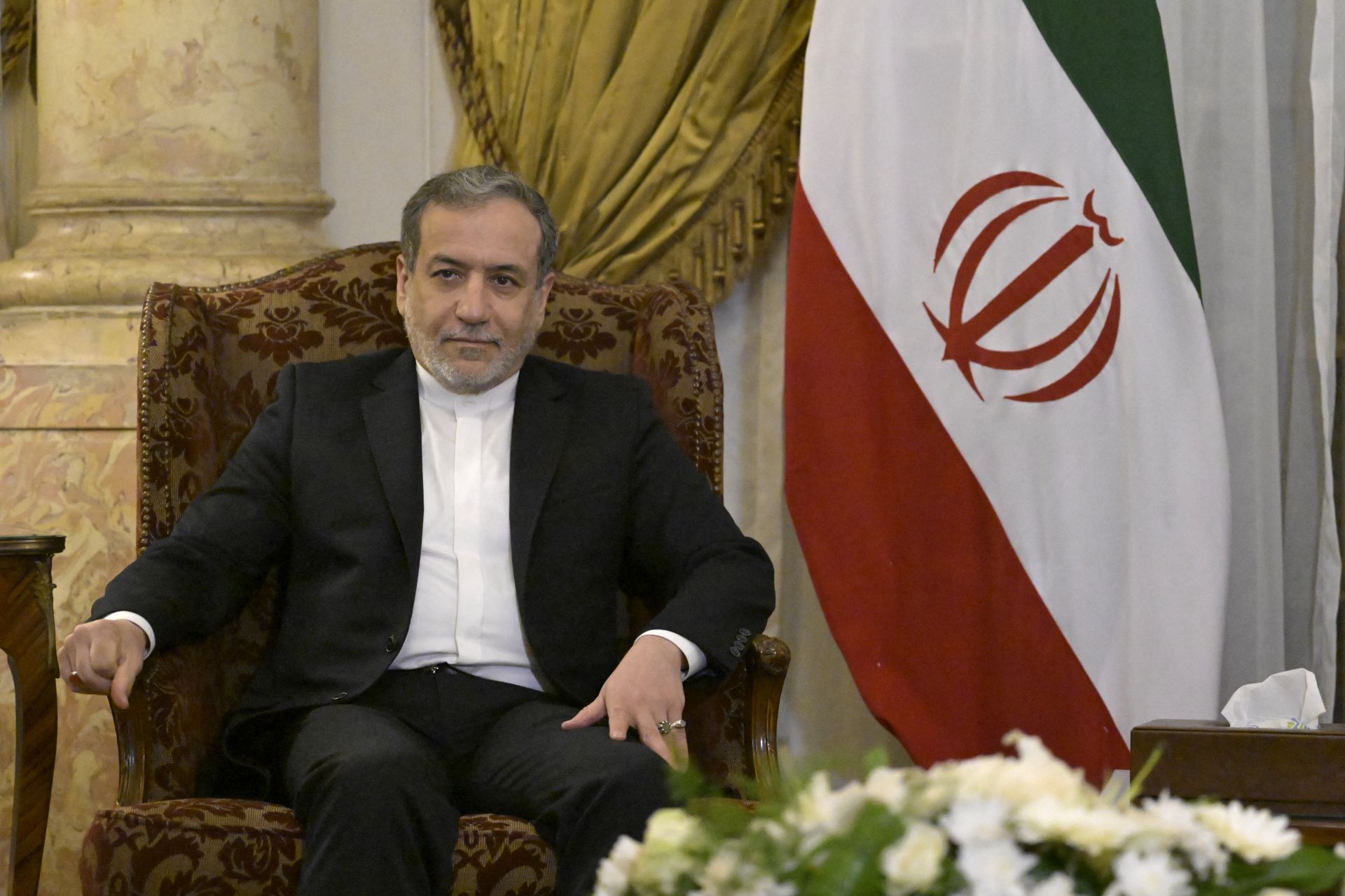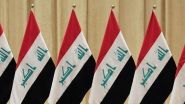- Home
- Middle East
- UN Security Council Emergency to Meet on Monday After Iran Request

Iran's Foreign Minister Abbas Araghchi on October 17, 2024. ©Photo by Khaled DESOUKI / AFP
The UN Security Council will hold an emergency meeting on Monday at Iran's request following Israel's deadly missile strikes in retaliation for an October 1 attack by Tehran.
The Swiss presidency of the UNSC said Sunday that the meeting would take place following the request by Iran, supported by Algeria, China and Russia.
Earlier on Sunday, Iran called for an urgent United Nations Security Council meeting to condemn Israel's air strikes on the Islamic republic a day earlier.
Foreign Minister Abbas Araghchi sent a letter to the UN chief and the head of the Council "demanding an urgent meeting of the Security Council to take a decisive position in condemning this aggression", a ministry statement said.
The UN Security Council will hold an emergency meeting on Monday at Iran's request following Israel's deadly missile strikes in retaliation for an October 1 attack by Tehran.
The Swiss presidency of the UNSC said Sunday that the meeting would take place following the request by Iran, supported by Algeria, China and Russia.
On Saturday, Israel conducted air strikes on military sites in Iran in response to Tehran's October 1 attack on Israel, itself retaliation for the killing of Iran-backed Hezbollah and Hamas leaders, as well as a Revolutionary Guards commander.
In his letter, Araghchi said "most of the projectiles fired were intercepted by Iran's defence systems" but the attack led to damage at "the target points", as well as the death of four soldiers.
He said the Israeli attack was a "clear violation of the sovereignty" of Iran which "reserves the inherent right... to respond to this criminal aggression."
“An appropriate response”
Meanwhile, Iranian President Masoud Pezeshkian said on Sunday that Iran did not seek war with Israel but was ready to deliver "an appropriate response" to strikes this week on Iranian military sites.
"We do not seek war but we will defend the rights of our nation and country," Pezeshkian told a cabinet meeting, adding that Iran "will give an appropriate response to the aggression of the Zionist regime."
The Israeli military said it hit Iranian missile factories, missile installations and other systems in several regions, and warned Tehran against responding.
Iran has downplayed the attack, saying it caused "limited damage" to a few radar systems, while media outlets dismissed the assault as "weak", signalling what analysts say is the Islamic republic's reluctance to escalate further.
Pezeshkian blamed the soaring regional tensions on Israel's "aggression" and US support for the country, which Tehran does not recognise.
"If the aggressions of the Zionist regime and its crimes continue, the tensions will spread," said the Iranian president.
Pezeshkian added that the United States had "promised to end the war in return for our restraint, but they did not keep their promise," Pezeshkian added.
Iran has called for an end to the Gaza war, triggered by the October 7 attack on Israel last year, carried out by the Tehran-backed Palestinian militant group Hamas.
Iran also backs other proxies in the region, including Hezbollah which has been fighting an all-out war with Israeli forces for the past month after a year of largely low-intensity exchanges.
With AFP
Read more



Comments